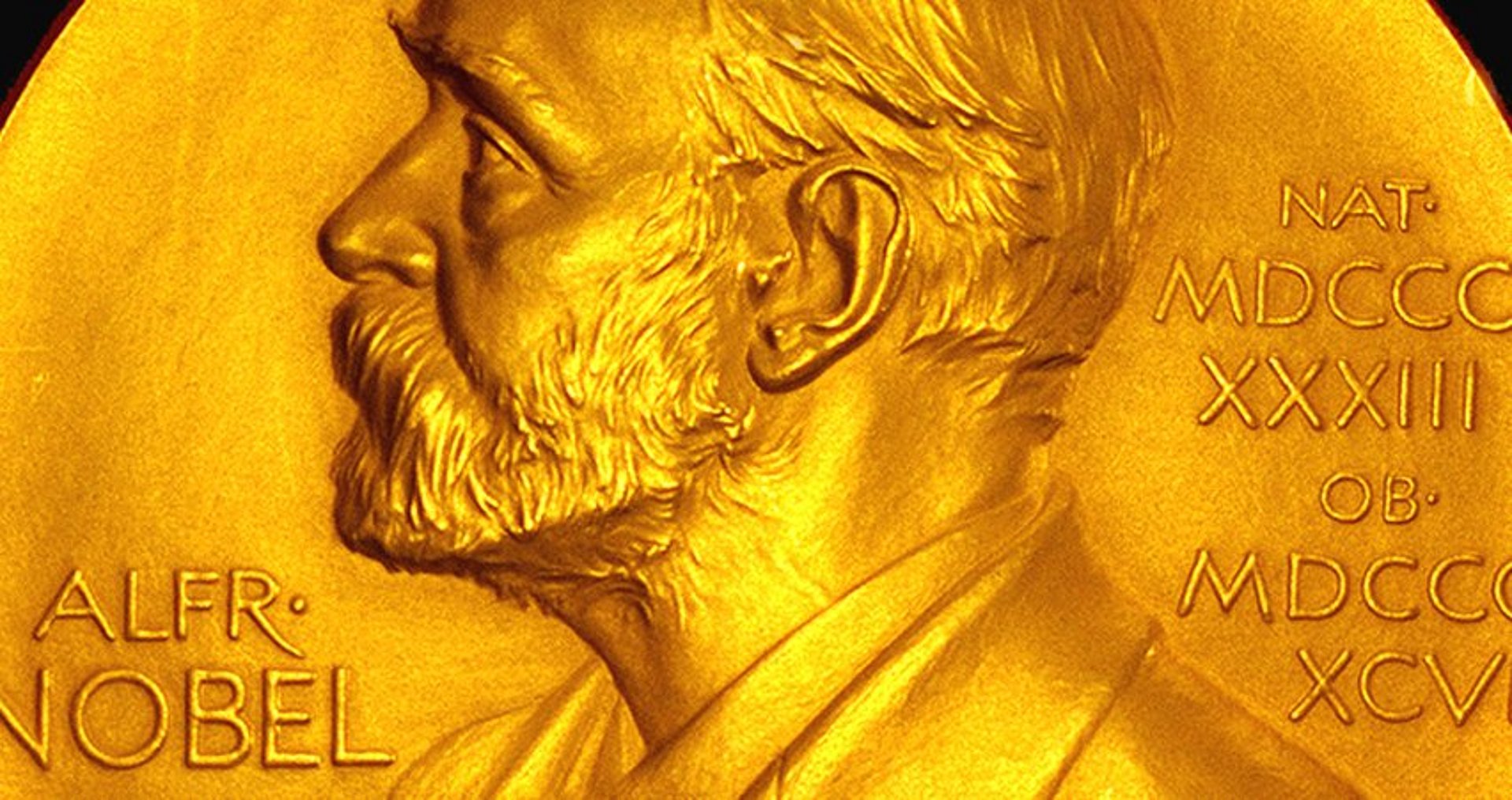Nobel Prizes
In his will, the Swedish inventor and industrialist Alfred Nobel (1833–1896) stipulated that a portion of his estate should be used to endow prizes which would be awarded to those who, “during the preceding year, shall have conferred the greatest benefit to mankind”.

The Nobel Prize has been awarded annually since 1901 and is recognised today as the highest accolade for achievements in chemistry, medicine, physics, literature, economics, and for contributions to world peace.
To date (as of 2024), 19 scientists and alumni of the TUM have received the Nobel Prize:
Chemistry
David Baker, professor at the University of Washington in Seattle, is to be awarded the 2024 Nobel Prize in Chemistry. The biochemist has been a Distinguished Affiliated Professor at the Technical University of Munich (TUM) since 2017. He receives the prize for his work in the field of computational protein design.
Prof. Dr. Joachim Frank received the Nobel Prize in Chemistry in 2017 jointly with Jaques Dubochet and Richard Henderson "for developing cryo-electron microscopy for the high-resolution structure determination of biomolecules in solution".
Frank obtained his doctorate at the Technical University of Munich under Prof. Dr. Walter Hoppe in 1970.
Prof. Bernard L. Feringa received the Nobel Prize in Chemistry in 2016 jointly with Jean-Pierre Sauvage and Sir J. Fraser Stoddart “for the design and synthesis of molecular machines”.
Feringa is Honorary Hans Fischer Senior Fellow of the TUM Institute for Advanced Study since 2012.
Prof. Dr. Gerhard Ertl received the Nobel Prize in Chemistry in 2007 “for his studies of chemical processes on solid surfaces”.
Ertl obtained his doctorate at the Technical University of Munich under Prof. Heinz Gerischer in 1965 and completed his postdoctoral research (Habilitation) there in 1967. From 1965 to 1968 he worked as a postdoctoral researcher (Assistent) at the Institute of Physical Chemistry.
Prof. Rudolph A. Marcus received the Nobel Prize in Chemistry in 1992 “for his contributions to the theory of electron transfer reactions in chemical systems”.
Prof. Dr. Marcus was made TUM Distinguished Affiliated Professor in 2008.
Prof. Dr. Johann Deisenhofer received the Nobel Prize in Chemistry in 1988 jointly with Robert Huber und Hartmut Michel “for the determination of the three-dimensional structure of a photosynthetic reaction centre”.
Deisenhofer studied physics at the Technical University of Munich from 1965 to 1971 and completed his postdoctoral research (Habilitation) in experimental physics there in 1987.
Prof. Dr. Robert Huber received the Nobel Prize in Chemistry in 1988 jointly with Johann Deisenhofer and Hartmut Michel “for the determination of the three-dimensional structure of a photosynthetic reaction centre”.
Huber studied chemistry at the Technical University of Munich from 1956 to 1960, obtained his doctorate there in 1963 and completed his postdoctoral research (Habilitation) in 1968. He has been Honorary Professor in the Department of Chemistry since 1976.
Prof. Dr. Ernst Otto Fischer (1918–2007) received the Nobel Prize in Chemistry in 1973 jointly with Geoffrey Wilkinson “for their pioneering work, performed independently, on the chemistry of the organometallic, so called sandwich compounds”.
Fischer studied chemistry at the Technical University of Munich from 1941 to 1942 and from 1946 to 1949. He obtained his doctorate under Prof. Walter Hieber in 1952 and held the Chair for Inorganic Chemistry from 1964 to 1984.
Prof. Dr. Hans Fischer (1881–1945) received the Nobel Prize in Chemistry in 1930 “for his researches into the constitution of haemin and chlorophyll and especially for his synthesis of haemin”.
Fischer was Professor of Organic Chemistry at the Technical University of Munich from 1921 to 1945, and Dean of the Department of General Sciences from 1930 to 1936.
Prof. Dr. Heinrich Wieland (1877–1957) received the Nobel Prize in Chemistry in 1927 “for his investigations of the constitution of the bile acids and related substances”.
Wieland was Professor of Organic Chemistry at the Technical University of Munich from 1917 to 1921.